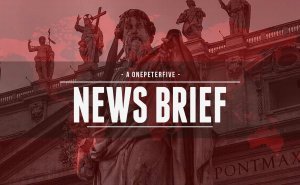Cardinal Pell Uses Time Well in Prison While Awaiting Final Appeal Decision
By Edward Pentin | Cardinal George Pell is in “good spirits” and has “developed a personal ministry, writing back to other prisoners who have been writing to him about their lives,” a source close to the former head of the…
Read More


Recent Comments